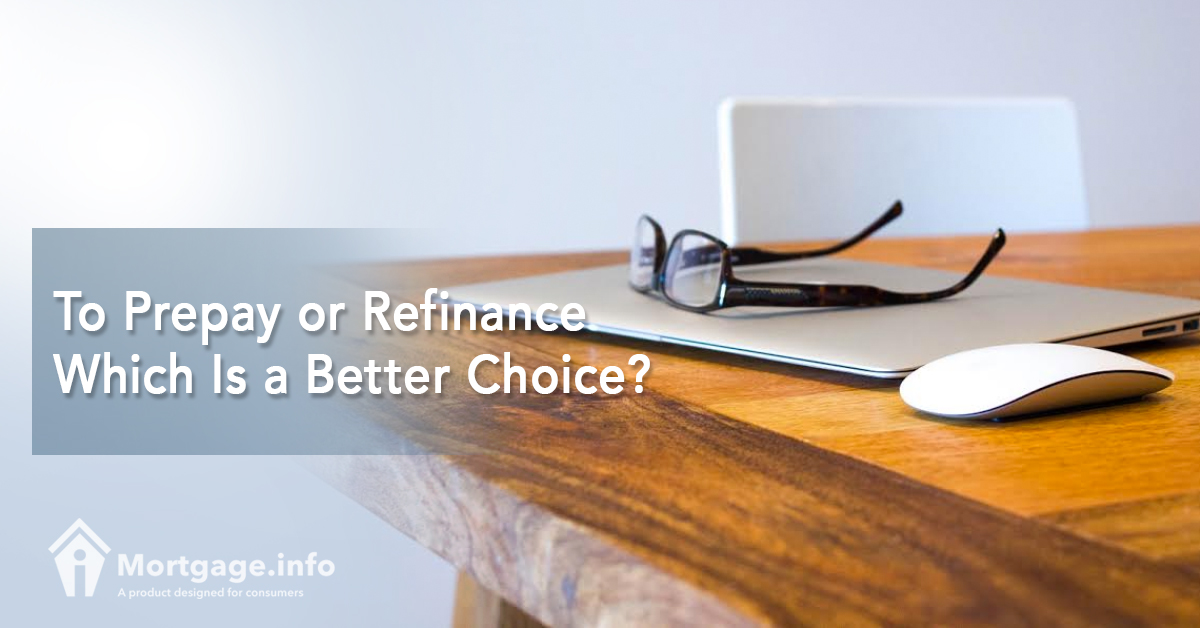The rising mortgage rates may have dampened some homeowners’ fire to lower their rates via a refinance. Instead of refinancing, other homeowners have focused on making prepayments toward their mortgages. One is keen to lower monthly payments, the other to save on interest costs and thus get rid of mortgage debt early. To prepay or refinance? Which is a far better choice for homeowners?
Between Prepayment and Refinance
The decision to prepay or refinance lies in each homeowner’s circumstances. Each option has its own rewards and risks.
When you prepay, you are making extra payments on top of your scheduled mortgage payment every month. This extra amount goes toward the loan principal. Those with the usual 30-year mortgages would know that this speeds up the payment of the loan and cuts back the interest costs as the loan gets paid earlier.
Refinancing, on the other hand, is replacing your current loan with a new loan at a presumably lower rate. When rates go really low, a refinance is the perfect option to get rid of higher rates from 6% to 4% and so on. You lower your monthly mortgage payments this way, making your housing debt more affordable. And if you stick long enough in the house, you’ll reap the full benefits of refinancing.
When Does Prepay or Refinance Make Sense?
To prepay or refinance depends on these matters:
- Prepayment penalty
- Cash
- Rates
- Costs
Prepayment penalty
While it’s certain that FHA and VA loans don’t have prepayment penalties, some mortgages do. This prohibits homeowners to pay off their mortgage earlier than scheduled, either through prepayments or refinance.
Always ask your lender about prepayment penalty fees before you make any move. This may cease to be an issue if you are further along your mortgage.
Cash
Not everyone has extra cash for extra mortgage payments. This is exactly the reason why some refinancers take cash out of their homes. And if you do have some funds to spare, do you plan to use it for investments, debt servicing, savings?
If you decide to prepay, cash on hand no matter how small can help you. Anyway, this cash is likely to end up as a mortgage payment, what you are doing now is just expediting the repayment.
For cash-out refinancers, use your equity moderately. It’s a matter of taking $20,000 in cash-out refinance and paying it off in the course of 20 years or so with interest. You have basically rolled your “personal” debt into your mortgage and if you neglect on your loan, you could end up losing your home.
Rates
Rates are all about timing. If they dip really low, you can expect to refinance to save on the interest costs that historic low rates bring. Even a percentage down from your current rate could mean a lot of difference in your monthly payment.
If interest rates are just slightly lower, calculate if it will save you more in interest to pay off your loan early or refinance to a not-so-low rate and prolong your loan term, which restarts building your equity.
Costs
Making prepayments doesn’t entail prior lender approval so no closing costs to be worried of. But you have to be clear with your mortgage servicer that these extra payments should be applied to your loan principal.
When you refinance, however, expect the lender to pull your credit report, require a new appraisal and charge other fees that come with a new loan. These closing costs can dent the supposed savings you have on the refinance, which could run 2 to 5% of your total loan amount.
There is this goal to pay off your mortgage early so you’d be debt-free by the time you reach your retirement. Still, there’s the call to refinance to ease the burden of paying high monthly payments. Which is your goal? Take it from there.

